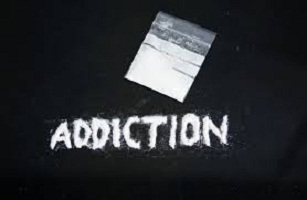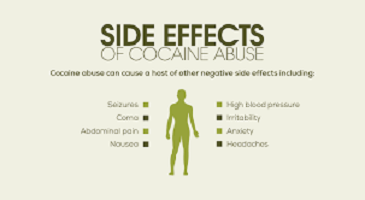Cocaine Addiction
Impact of Cocaine Addiction
Effects of cocaine on the Brain and Body
Uncover the Impact of Cocaine Addiction and its implications for health. Trust Best Lean Online for reliable information and health products. Cocaine is a powerful stimulant drug that has profound effects on the brain and body. When consumed, it rapidly enters the bloodstream and reaches the brain, where it produces intense euphoria and increased energy. This is due to its ability to increase the levels of dopamine, a neurotransmitter associated with pleasure and reward, in the brain. However, the effects of cocaine are short-lived, typically lasting only 15 to 30 minutes, which often leads users to consume more of the drug to maintain the high.
In addition to the euphoric effects, cocaine also has several other physiological effects. It increases heart rate and blood pressure, constricts blood vessels, and raises body temperature. These changes can be dangerous, especially for individuals with pre-existing heart conditions, as they increase the risk of heart attack, stroke, and other cardiovascular problems.
Chronic use of cocaine can lead to significant changes in the brain’s structure and function. Over time, the brain becomes less responsive to natural rewards, such as food and social interactions, leading to a decreased ability to experience pleasure. This can result in an increased reliance on the drug to feel good, perpetuating the cycle of addiction.
Furthermore, long-term cocaine use can cause a variety of physical health problems. These include respiratory issues, such as chronic cough and lung damage, gastrointestinal problems, such as ulcers and perforations, and neurological issues, such as seizures and headaches. Additionally, individuals who snort cocaine may experience damage to the nasal septum and surrounding tissues, leading to chronic nosebleeds and a loss of sense of smell.
Recognizing the Signs of cocaine use
Recognizing the signs of cocaine use can be challenging, especially in the early stages. However, there are several behavioral and physical indicators that may suggest someone is using cocaine. These signs can vary depending on the frequency and amount of cocaine use, as well as the individual’s overall health and lifestyle.
 One of the most noticeable signs of cocaine use is a sudden and dramatic change in behavior. Individuals who use cocaine often exhibit increased energy, talkativeness, and confidence. They may become more sociable and engage in risky behaviors that are out of character for them. Additionally, they may have difficulty sleeping and exhibit erratic or impulsive behavior.
One of the most noticeable signs of cocaine use is a sudden and dramatic change in behavior. Individuals who use cocaine often exhibit increased energy, talkativeness, and confidence. They may become more sociable and engage in risky behaviors that are out of character for them. Additionally, they may have difficulty sleeping and exhibit erratic or impulsive behavior.
Physical signs of cocaine use can include dilated pupils, a rapid heart rate, and increased blood pressure. Users may also experience frequent nosebleeds, runny nose, and nasal congestion if they snort the drug. Other physical signs include weight loss, decreased appetite, and neglect of personal hygiene.
In addition to these behavioral and physical signs, there are several other indicators that may suggest someone is using cocaine. These can include finding drug paraphernalia, such as small bags of white powder, razor blades, and straws, as well as noticing a decline in work or school performance, financial problems, and strained relationships with family and friends.
Identifying the Symptoms of cocaine addiction
Cocaine addiction is a complex condition that affects both the brain and behavior. It is characterized by a compulsive need to use the drug despite the negative consequences it may have on an individual’s life. Recognizing the symptoms of cocaine addiction is crucial for early intervention and treatment.
One of the primary symptoms of cocaine addiction is a strong craving for the drug. Individuals may spend a significant amount of time thinking about, obtaining, and using cocaine. This preoccupation with the drug can interfere with daily responsibilities and activities, leading to neglect of work, school, and personal relationships.
Another symptom of cocaine addiction is tolerance, which occurs when an individual needs to use larger amounts of the drug to achieve the same effects. This can lead to increased consumption and a higher risk of overdose. Additionally, individuals may experience withdrawal symptoms when they stop using cocaine, which can include fatigue, depression, anxiety, and intense cravings.
Behavioral changes are also common in individuals with cocaine addiction. They may become secretive or deceptive about their drug use, isolate themselves from friends and family, and engage in illegal activities to obtain the drug. Additionally, they may experience mood swings, irritability, and paranoia.
Physical symptoms of cocaine addiction can include chronic fatigue, insomnia, and weight loss. Individuals may also experience cardiovascular problems, such as chest pain and irregular heartbeats, as well as respiratory issues, such as shortness of breath and chronic cough. Long-term use of cocaine can also lead to neurological problems, such as seizures and headaches.
It is important to note that cocaine addiction is a treatable condition. With the right support and treatment, individuals can overcome their addiction and lead healthy, fulfilling lives. Treatment options for cocaine addiction may include behavioral therapy, counseling, and support groups, as well as medication to manage withdrawal symptoms and cravings.
Understanding the Psychological Effects of Cocaine
Cocaine addiction not only affects the body but also has a profound impact on an individual’s mental health. The psychological effects of cocaine can be severe and long-lasting, contributing to a cycle of addiction that is difficult to break. Understanding these psychological effects is crucial for recognizing the full scope of cocaine addiction and providing effective treatment.

One of the most immediate psychological effects of cocaine use is the intense euphoria that it produces. This feeling of extreme happiness and pleasure is often accompanied by increased confidence, sociability, and a sense of invincibility. However, these positive feelings are short-lived and are often followed by a “crash” characterized by feelings of depression, irritability, and fatigue.
Chronic use of cocaine can lead to more severe psychological effects, including anxiety, paranoia, and hallucinations. Individuals may experience intense feelings of fear and distrust, believing that others are out to get them. These paranoid thoughts can lead to erratic and sometimes violent behavior, further complicating the individual’s personal and social life.
Depression is another common psychological effect of chronic cocaine use. The brain’s natural production of dopamine is disrupted by the constant influx of the drug, leading to a decreased ability to experience pleasure from normal activities. This can result in a persistent feeling of sadness and hopelessness, which may drive individuals to continue using cocaine in an attempt to recapture the euphoria they once felt.
Additionally, cocaine addiction can exacerbate existing mental health conditions or contribute to the development of new ones. Individuals with a history of mental health issues, such as depression, anxiety, or bipolar disorder, may find that their symptoms worsen with cocaine use. Conversely, individuals without a prior history of mental health problems may develop these conditions as a result of their drug use.
The Social Impact of Cocaine Addiction
Cocaine addiction does not only affect the individual user; it also has a significant impact on their social relationships and overall quality of life. The social consequences of cocaine addiction can be far-reaching, affecting family dynamics, friendships, work performance, and community involvement.
One of the most immediate social impacts of cocaine addiction is the strain it places on personal relationships. Family members and friends may struggle to understand the changes in behavior and personality that accompany addiction. Trust can be eroded as the individual becomes more secretive and deceptive about their drug use. This can lead to conflicts, feelings of betrayal, and, in some cases, complete breakdowns in communication.
Work performance is another area that can be severely affected by cocaine addiction. The erratic behavior, lack of focus, and decreased productivity associated with drug use can lead to job loss or disciplinary action. Financial problems may arise as individuals spend increasing amounts of money on cocaine, leading to debt and financial instability. This can further strain relationships and contribute to a sense of hopelessness and desperation.
Community involvement and social activities may also suffer as a result of cocaine addiction. Individuals may withdraw from social gatherings and community events, isolating themselves from friends and acquaintances. This isolation can perpetuate the cycle of addiction, as the individual may turn to cocaine as a way to cope with feelings of loneliness and alienation.
Additionally, the legal consequences of cocaine use can have a profound impact on an individual’s social standing. Possession and distribution of cocaine are illegal in most places, and individuals caught with the drug may face arrest, legal fees, and incarceration. A criminal record can have long-lasting effects on an individual’s ability to find employment, secure housing, and participate in community activities.
Preventing Cocaine Addiction: Awareness and Education
Preventing cocaine addiction requires a multifaceted approach that includes awareness, education, and early intervention. By understanding the risks associated with cocaine use and recognizing the signs of addiction, individuals, families, and communities can take proactive steps to prevent the onset of addiction and support those who may be struggling with substance abuse.
Education is a key component of prevention. Providing accurate and comprehensive information about the dangers of cocaine use can help individuals make informed decisions about their health and well-being. This education should begin at an early age, with schools, parents, and community organizations working together to promote healthy lifestyles and discourage drug use.
Aware of the signs and symptoms of cocaine use and addiction is also crucial for prevention. By recognizing the early indicators of drug use, family members, friends, and healthcare professionals can intervene before the addiction becomes more severe. Early intervention can include open and non-judgmental conversations about drug use, as well as referrals to counseling and support services.
Community support plays a vital role in preventing cocaine addiction. Creating a supportive and inclusive environment can help individuals feel connected and valued, reducing the likelihood of turning to drugs as a coping mechanism. Community programs that promote mental health, provide recreational activities, and offer support for those struggling with substance abuse can make a significant difference in preventing addiction.
Finally, addressing the underlying factors that contribute to drug use is essential for prevention. This includes addressing mental health issues, providing access to healthcare and social services, and creating opportunities for education and employment. By addressing these root causes, communities can create a healthier and more supportive environment for all individuals.
Treatment and Recovery: Overcoming Cocaine Addiction
Overcoming cocaine addiction is a challenging but achievable goal. With the right support and treatment, individuals can break free from the cycle of addiction and lead healthy, fulfilling lives. Treatment for cocaine addiction typically involves a combination of behavioral therapy, counseling, support groups, and, in some cases, medication.
Behavioral therapy is a cornerstone of treatment for cocaine addiction. Cognitive-behavioral therapy (CBT) is particularly effective, as it helps individuals identify and change the thought patterns and behaviors that contribute to their drug use. CBT can also teach coping strategies and problem-solving skills that can help individuals manage stress and avoid relapse.
Counseling and support groups provide a safe and supportive environment for individuals to share their experiences and receive encouragement from others who are also in recovery. Group therapy can help individuals build a sense of community and accountability, while individual counseling can address specific issues and provide personalized support.
Medication may be used to manage withdrawal symptoms and reduce cravings. While there are currently no medications specifically approved for the treatment of cocaine addiction, some medications used for other conditions, such as antidepressants and anticonvulsants, may be helpful in managing symptoms and supporting recovery.

Recovery from cocaine addiction is a long-term process that requires ongoing support and commitment. After completing a formal treatment program, individuals may benefit from continued participation in support groups, ongoing counseling, and regular check-ins with healthcare professionals. Building a strong support network of family and friends can also provide encouragement and accountability throughout the recovery journey.
It is important to remember that relapse is a common part of the recovery process and does not mean that treatment has failed. If a relapse occurs, it is important to seek support and re-engage with treatment as soon as possible. With perseverance and support, individuals can overcome setbacks and continue on the path to recovery. Buy pure crack online, Impact of Cocaine Addiction,Effects of cocaine,Signs of cocaine use,Symptoms of cocaine addiction,Psychological Effects of Cocaine,Impact of Cocaine Addiction,Effects of cocaine,Signs of cocaine use,Symptoms of cocaine addiction,Psychological Effects of Cocaine.
Cocaine addiction is a serious and complex condition that affects individuals, families, and communities. Understanding the effects of cocaine on the brain and body, recognizing the signs and symptoms of use and addiction, and providing effective prevention and treatment strategies are crucial for addressing this issue. While the journey to recovery can be challenging, it is possible with the right support and resources. By fostering awareness, education, and a supportive environment, we can help individuals overcome cocaine addiction and achieve hope and healing.
